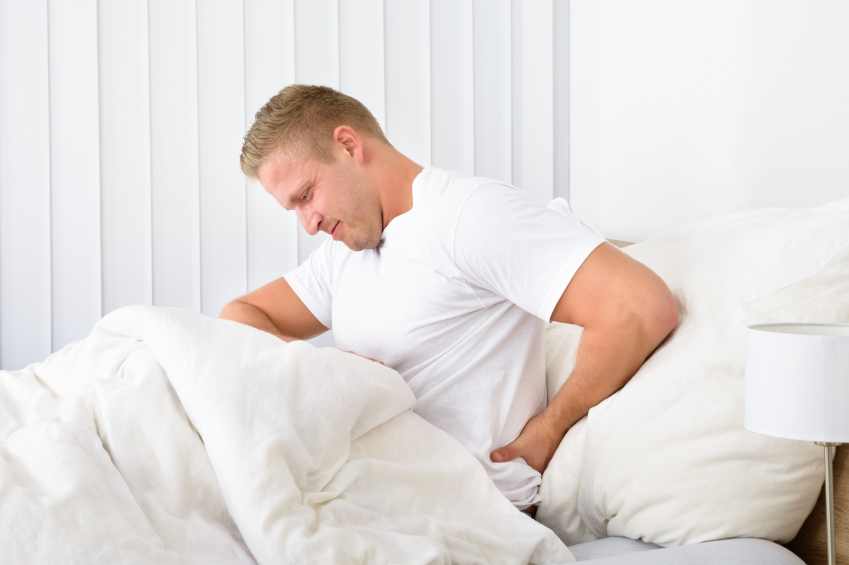Do you find it difficult to get out of bed in the morning because of too much pain? Does it take an hour or two for your body to “warm up” and your joints and muscles to loosen before you can tackle the tasks of the day? If you answered yes, you are not alone.
According to the American College of Rheumatology, fibromyalgia affects 3 to 6 million Americans. That’s 1 in 50 Americans, with seven times more frequency in women than in men. And according to the NHIS, by 2030 an estimated 67 million Americans are projected to have doctor-diagnosed arthritis.
Morning stiffness is one of the more common complaints doctors hear about from patients with fibromyalgia, arthritis, rheumatism and those whose bodies no longer rebound after a day of activity — even gardening — like it used to.
Don’t let morning stiffness cut your day short by starting it later… And while most people reach for muscle relaxants like Motrin, and pain relievers like Aleve to get them going, you don’t need to.
The Main Causes of Morning Stiffness
The basic causes of morning stiffness are lack of daily physical activity, being overweight, having a poor diet, not sleeping properly, and being in an environment that tends to be cold and/or damp.
Exercising on a daily basis (even walking while swinging your arms) is a great way to release those feel-good endorphins, get the blood moving, and help clear nasty toxins from the body.
Being overweight causes you to carry unnecessary pounds, which puts strain on your joints, muscles, tendons, and ligaments.
A poor diet that is high in simple carbohydrates causes weak muscles, bad posture, and lethargy.
A poor sleeping posture can lock your body in a bad position for hours, causing reduced blood flow to the local muscles, and a buildup of lactic acid, causing stiffness.
Living or working in a cold or damp environment causes muscles to stiffen because the cold or damp affects the blood flow throughout the body.
Relieving Morning Stiffness
You’ll be happy to know that what is causing your morning stiffness can be avoided or corrected… Here are 10 easy things you can do to make a big difference in your life.
- Be sure to get ample deep sleep so your body can repair and recharge. Forget about those troubles or conversations or tasks that need addressing; they can be handled tomorrow. Also, be sure to sleep either on your side or on your back — as stomach sleeping causes unnecessary stress on the low back and spine.
- If your room is drafty, seal the windows or door. If it is cold, try a space heater or use extra blankets to prevent that cold or dampness from stiffening your body.
- Do some easy stretches while lying in bed, then sitting up in bed, such as bending to the front and sides. This will stretch and loosen the muscles and help flush them with more blood.
- Take a hot shower. This serves as a means to induce sweating, promotes blood circulation, and releases muscle spasms. Simply stand under the hot water and… relax.
- After you are warmed up from the shower, do some gentle knee bends — as far as you can go without falling! You can hold on to something for balance if needed. You don’t have to go all the way down, either. These movements exercise almost 90% of the skeletal muscles. Find a counter, table, or chair and use your hands for support. Exhale and squat as low as you can go, then inhale and stand up again. Do 10 of these to get the morning blood flowing and keep the creaky joints silent.
- Drink the best water you can find. Often the tap water in our cities is not the freshest or safest. Even cities like Los Angeles have traces of psychiatric medicines and estrogen-like compounds in their tap water — and these toxins build up in your system over time, causing pain. It is advisable to drink either bottled water or reverse osmosis filtered water.
- Eat healthier. Cut down on simple carbohydrates and start reading labels to avoid consuming more toxins. Simply eliminate all foods with artificial color, enriched white flour, and artificial flavors/sweeteners (high fructose corn syrup, crystalline fructose and aspartame). If you don’t know what it is, or have difficulty pronouncing it, avoid ingesting it.
- Learn some coping mechanisms and stress management techniques so that you’re not lying awake all night thinking about your problems. Learning how to deal with toxic people in your life will both allow you to sleep better and reduce the stress-induced muscle spasms that cause pain.
- Get some regular exercise. The idea is to go out and do some something physical with your body. Even a simple routine of 10000 steps a day (buy a pedometer!) will greatly improve your health.
- Be the fashion police! You want to dress appropriately for these cold months, and you might do well to sleep in flannel pajamas or sweats. Remember, cold air causes muscles and joints to stiffen.
These simple tips followed with a little dedication, along with some minor lifestyle changes and improvements to your living environment, can help you overcome morning stiffness in no time.
Like this Article? Forward this article here or Share on Facebook.

